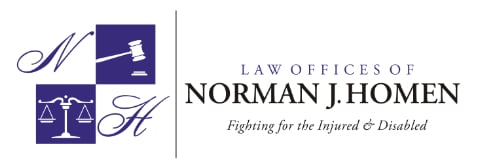What Is a Supplemental Job Displacement Benefit?
If you suffered an injury on the job, the financial effects on your future could be immense, and California workers’ compensation laws address the attendant challenges via various benefits that can include supplemental job displacement benefits (SJDB). The gist of SJDB is the provision of a voucher that serves as a promise to help you…
Medical Care after Suffering an Injury While on the Job
Accident victims sometimes sustain their injuries while they are on the job, working within the scope of their employment. When that occurs, they may need to undergo various types of medical care. The medical care that a work accident victim requires will depend upon the type of injury they sustained in their accident – and…
When Is a Medicare Set-Aside Proposal Recommended?
As you likely know, Medicare is a complicated government program that amounts to the nation’s healthcare program for those over the age of 65. Medicare is funded by the taxes paid by workers and their employers and by the premiums the government deducts from social security payments. Medicare, however, is a secondary payer, which can…
What if I Don’t Agree with the Doctor about How to Treat my Workers’ Comp Injury?
Individuals who suffer injuries while they are working at their job often have to seek medical treatment. In addition, they may be eligible to file a claim for various workers’ compensation benefits. Sometimes, an injured worker might not agree with a medical report that a treating physician provides. When that happens, there are certain steps…
What Types of Workers’ Compensation Settlements are There?
Victims of work-related accidents might be in a position to file a claim for various workers’ compensation benefits. As part of their claim, they could recover compensation for their medical treatment, a portion of their lost wages, and permanency. If benefits will need to continue for a long period of time, the insurance company might…
Working after a Workers’ Comp Injury
Individuals who suffer injuries while they are on the job often need extensive medical treatment. The medical treatment that an accident victim receives, as well as the recovery time, will depend upon the severity of their injuries. After suffering an on-the-job injury, continuing working – or returning to your job properly and safely – can…
Who Is Most Likely To Be Injured At Work?
According to data from the reputable Bureau of Labor Statistics, approximately 2.7 million non-fatal injuries were reported by private industry employees in 2020. If you ever wondered in which profession people are most likely to become injured, you have come to the right place. In our article, we will look at who is most likely…
Can You Work While on Workers’ Compensation?
Many people often ask, can you work while on workers’ compensation? After all, if you are being paid because your injuries mean you cannot work, you might naturally believe that you are not allowed to. However, given that you are not receiving your full salary while receiving workers’ compensation benefits, you may not feel that…
Workers’ Compensation: Post Traumatic Stress Disorder
Post-traumatic stress disorder (PTSD) is a crippling and debilitating condition that can keep people from functioning normally. This includes being able to get up and go to work every day and perform their job. Depending on the circumstances, they may be able to qualify for workers’ compensation that could cover their lost wages and the…
